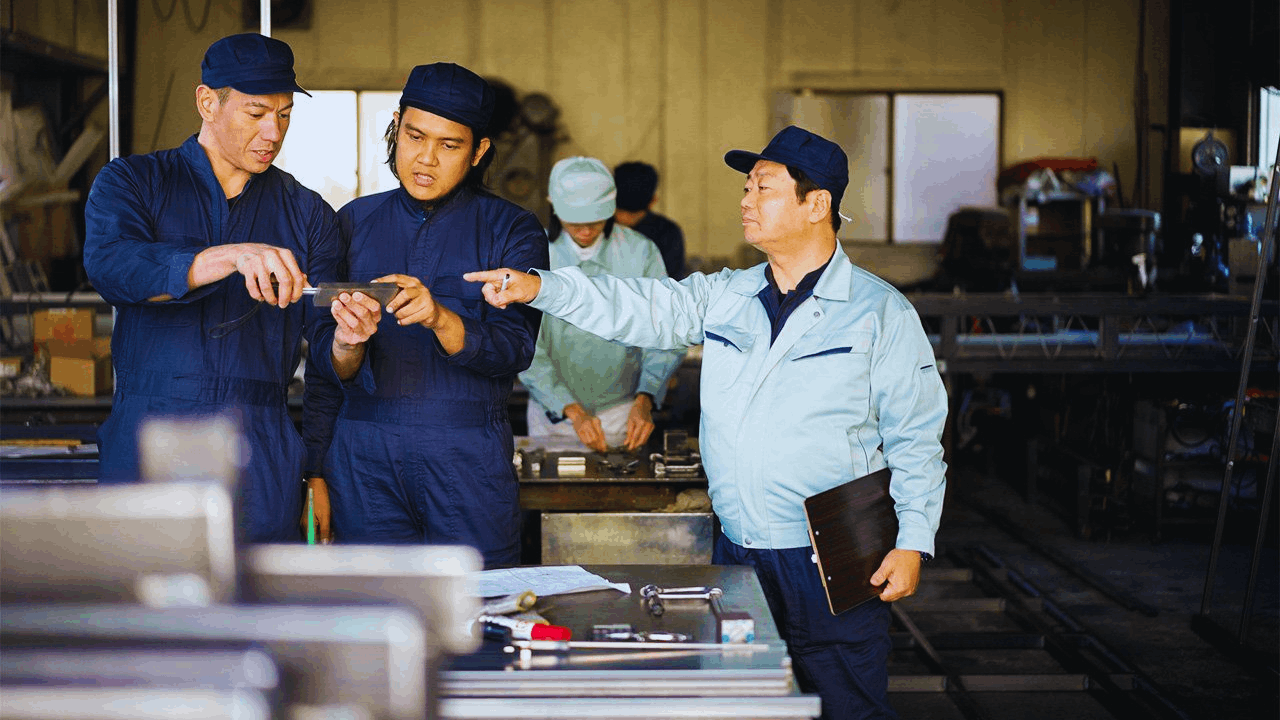Japan is expanding its foreign labor force to meet the growing demands of its industrial and manufacturing sectors. With a shrinking domestic workforce and an aging population, the country is actively seeking foreign talent to fill labor-intensive roles.
This is especially true for logistics, food processing, and light assembly lines. As a result, there are now Japan packing jobs for Francophone Africa workers looking to work abroad legally and earn a stable income.
If you speak French and are considering a career move to Japan, these jobs present a practical pathway to international employment.

Why Japan Needs Foreign Workers in the Packing and Factory Sectors
Japan’s local labor force cannot meet the rising demand for workers in logistics, food packaging, electronics, and automotive assembly lines.

This shortage has led the government to introduce new work visa systems that simplify the hiring of foreign nationals.
The Technical Intern Training Program (TITP) and the Specified Skilled Worker (SSW) visa programs are two major pathways enabling foreign labor recruitment.
Francophone workers from Africa are increasingly seen as reliable and hardworking, making them favorable candidates for entry-level roles.
Shift in Demographics and Labor Market
Japan’s aging society has created an urgent labor gap in hands-on industries. Companies in the packing and production industries must hire externally to maintain their operations.
This opens opportunities for those abroad who are willing to relocate and work diligently.
Inclusion of French-Speaking Workers
Employers now recognize the value of hiring from French-speaking African countries.
Many have created multilingual support structures. Language training and mentorship programs facilitate smoother integration.
Institutional Support Through Visa Programs
Japan’s immigration system offers work-based entry options for packing and factory work.
These include structured contracts and legal protections. Both new and experienced workers can apply under these schemes.
Common Job Roles Available in the Packing and Factory Sectors
Packing and factory jobs in Japan range from food processing and labeling to electronics assembly and warehouse sorting. Each role plays a key part in supporting Japan’s supply chain efficiency.

Positions usually involve operating machines, packaging products, labeling goods, or managing inventory systems.
Employers train workers to follow safety protocols and ensure product quality. While these jobs are entry-level, they can provide consistent income, legal residency, and long-term contract extensions.
Companies that value loyalty and consistency often offer performance bonuses and housing assistance.
Food Packaging and Processing
Factories involved in food preparation hire staff to weigh, wrap, and inspect packaged goods.
These jobs often have clean environments and structured workflows. French-speaking staff are provided with instructions in basic Japanese or through visual guides.
Assembly Line and Manufacturing Support
Electronic components and vehicle parts require careful handling and line management.
Workers in this role handle tools and assist machines in precise assembly tasks. Training is provided to maintain speed and accuracy.
Warehouse Sorting and Logistics
Packing centers often need laborers to load, unload, and sort items for delivery.
This includes labeling products and placing them on shelves. These jobs require attention to detail and physical endurance.
Benefits of Working Packing Jobs in Japan as a Francophone African
Taking up a packing or factory job in Japan comes with several advantages. In addition to earning a competitive salary, workers are provided housing, transport support, and medical insurance.

Some employers offer contract renewals, which allow workers to extend their stay or apply for long-term residency after a few years.
Japan is also known for workplace safety, punctuality, and organized environments. Workers benefit from scheduled breaks, fair wages, and regulated hours.
These roles can be a stepping stone toward more advanced employment or training opportunities within Japan’s economic system.
Stable Income and Predictable Hours
Most factory jobs in Japan follow a clear hourly or monthly pay system. Overtime is regulated and paid accordingly.
Workers can plan their finances and send remittances back home with confidence.
Housing and Welfare Support
Many employers provide subsidized housing or dormitory-style accommodations.
This reduces living costs and allows workers to focus on their job. Health insurance and workplace accident coverage are often included.
Opportunities for Growth and Extension
Some companies allow job rotation or internal promotion. Long-term contracts or SSW transfers are possible after initial training.
French-speaking workers who learn Japanese can unlock more career paths.
Where to Look for Japan Packing Jobs as a Francophone Worker
Job seekers should start with legitimate recruiting agencies that specialize in international employment.

Official Japanese government pages, embassy postings, and international job fairs can also serve as reliable sources.
Candidates can connect with others who have worked in Japan and join Francophone support communities online. Some Japanese companies now run their own multilingual career pages to recruit directly from African regions.
Partner Agencies in Francophone Countries
Many Japan-based recruiters collaborate with certified partners in countries like Côte d’Ivoire, Senegal, and Cameroon.
These agencies offer orientation sessions and guide applicants step-by-step. Applicants are usually required to attend pre-departure training.
Embassy and Government Job Boards
Some Japanese embassies post job links and application instructions on their websites.
These are vetted and legally verified. They also offer visa and document support.
Online Platforms With Direct Employer Listings
Websites such as Hello Work Japan or job search platforms in Japan offer listings in English and other languages.
Some listings now include French-language support. Applying directly on employer portals is encouraged if a translator is available.
Requirements to Qualify for Packing Jobs in Japan
Applicants must meet specific qualifications before they can apply for factory roles in Japan.

The minimum requirements include being physically healthy, aged between 18 and 35 in most cases, and having no criminal record.
Most jobs do not require advanced education, but the ability to follow instructions and complete repetitive tasks is critical.
Basic Japanese knowledge is sometimes required, depending on the role, although language training may be provided before or after arrival.
Physical and Age Requirements
Most jobs require standing for long hours and performing routine tasks.
Applicants should be healthy and fit for physical work. Age restrictions depend on the employer and the type of visa.
Educational and Work History
While formal education isn’t mandatory, basic literacy and numeracy help in factory tasks.
Prior experience in similar roles is a bonus. Employers may ask for a short work history summary.
Visa Eligibility and Legal Documents
To qualify, applicants must meet the visa requirements under TITP or SSW.
These include a valid passport, police clearance, and health certification. Visa processing may take several weeks, depending on documentation.
How to Apply for a Packing Job in Japan
The application process involves registering with a licensed recruiter, submitting your documents, and preparing for an interview. Once selected, you will attend job training, receive your visa approval, and relocate to Japan.

Agencies often conduct group orientations and language basics training before departure. Following instructions, meeting deadlines, and communicating consistently will help speed up the process.
Once in Japan, workers usually attend orientation at the job site. This includes safety briefings, introductions to team leaders, and a demonstration of factory equipment.
Workers are paid according to contract terms and can begin work almost immediately. Staying disciplined and adapting to Japanese work culture is essential for long-term success.
Registration and Screening Process
Applicants begin by submitting personal details and attending an initial interview.
Agencies verify documents and match candidates with available jobs. Only shortlisted candidates proceed to visa filing.
Job Training and Cultural Preparation
Training programs cover safety, equipment use, and communication basics.
Workers may receive language support or be placed in bilingual teams. Cultural training ensures smoother adaptation.
Travel, Orientation, and Job Start
After visa approval, workers travel to Japan and settle in the provided accommodations.
A site-level briefing helps them understand expectations. They begin work shortly after orientation is complete.
Conclusion
For workers from French-speaking African countries, Japan’s packing jobs for Francophone Africa represent a rare opportunity to earn a legal income abroad.
Start your application with a trusted agency, stay informed, and take the steps toward a new future in Japan. With effort and preparation, success in the Japanese workforce is within your reach.











